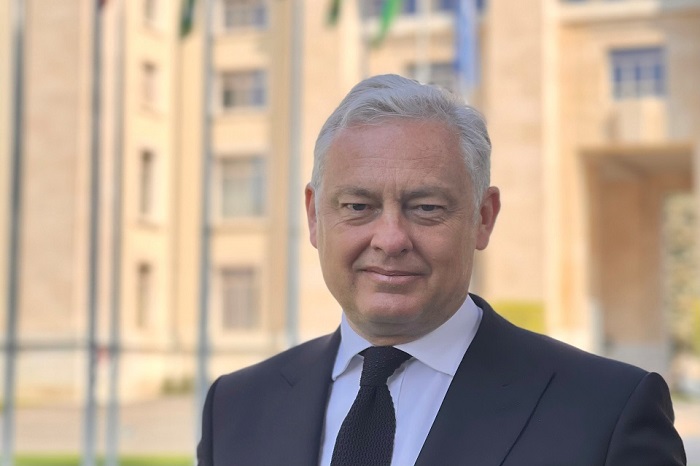
The Permanent Representative to the UK in Geneva, Ambassador Simon Manley introduced a resolution on Sri Lanka at the UN Human Rights Council (UNHRC) in Geneva today.
The resolution has been proposed by the core group on Sri Lanka, comprising Canada, Germany, Malawi, Montenegro, North Macedonia, the United States, and the United Kingdom.
The draft resolution has been titled “Promoting reconciliation, accountability and human rights in Sri Lanka’.
Presenting the resolution, Manley said the text is largely based on last year’s resolution but has been updated to reflect some of the key developments over the last 18 months in what has been a rather dramatic time for Sri Lanka – an economic crisis, mass protests, and a change in government, all of which have had a significant bearing on the human rights situation in the country.
Full statement by Simon Manley on the new resolution on Sri Lanka:
I have the honour to introduce draft resolution L1 Rev 1 entitled ‘Promoting reconciliation, accountability and human rights in Sri Lanka’ which has been proposed by a group of states comprising Canada, Germany, Malawi, Montenegro, North Macedonia, the United States and the United Kingdom.
The text is largely based on last year’s resolution but has been updated to reflect some of the key developments over the last 18 months in what has been a rather dramatic time for Sri Lanka – an economic crisis, mass protests, and a change in government, all of which have had a significant bearing on the human rights situation in the country.
The draft both recognises the challenges which Sri Lanka has faced during this period and acknowledges progress where this has occurred.
It reflects some of the more recent concerns outlined in the High Commissioner’s report, especially the human rights impact of the economic crisis.
And it also addresses several longstanding issues which still need to be addressed. These include the lack of accountability for past violations, the many unresolved cases of enforced disappearances, the need for Sri Lanka to meet its own commitments on the devolution of political authority, as well as the need to uphold the rights of all people in Sri Lanka including Tamils and Muslims.
The main requests in the resolution are in Operative Paragraphs (OP) 8 and 18.
OP8 seeks to continue the work initiated in last year’s resolution which created capacity within the Office of the High Commissioner to collect, consolidate, analyse and preserve information to support judicial and other proceedings.
This capacity was set up in response to the lack of progress made by Sri Lanka’s domestic legal mechanisms towards accountability for past alleged gross violations of human rights. Unfortunately, this capacity has only been fully operational since May of this year and so requires more time to complete its mandate. We are therefore seeking to extend it for a further period as recommended by the former High Commissioner.
OP18 requests further reporting by OHCHR and proposes to move from an 18-month time frame to 2 years. This is in recognition of the severe challenges which Sri Lanka is currently facing – allowing Sri Lanka sufficient time and space to make progress on human rights in what we all recognize is a very difficult context.
Mr President – the UK is a close partner to and long-standing friend of Sri Lanka, our times run deep. We bring this resolution in order to help Sri Lanka address ongoing challenges and in order to encourage progress on reconciliation, justice, and human rights.
I commend this draft resolution to my fellow members of this Council. (NewsWire)
